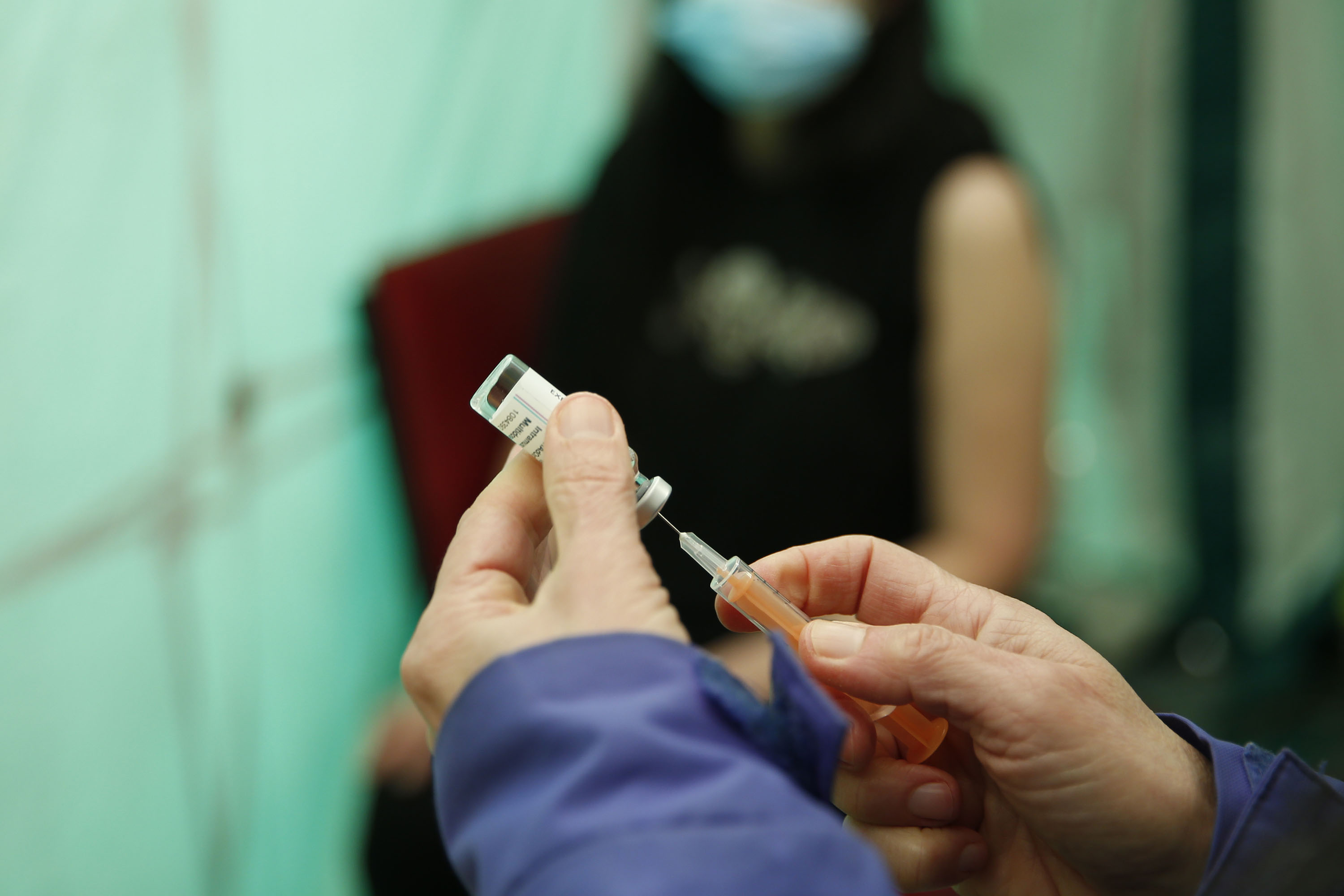
A single dose of either the Pfizer-BioNTech or Oxford-AstraZeneca vaccines reduces the risk of hospitalization from Covid-19 by more than 80% in people aged over 80, new data from Public Health England (PHE) shows.
The effect was seen three to four weeks after vaccination.
People aged over 70 were also shown to have up to 61% protection against symptomatic disease from the Pfizer-BioNTech vaccine and up to 73% from the Oxford-Astra-Zeneca vaccine.
"This adds to growing evidence showing that the vaccines are working to reduce infections and save lives," Dr. Mary Ramsay, head of immunization at PHE, said in a press release.
During a press conference on Monday, British Health Secretary Matt Hancock hailed the real-world data, highlighting that the UK’s daily number of deaths is decreasing "much faster" than in the first peak, and it’s “falling faster in the over 80s who got the jab first than in the under 80s.”
The UK has administered Covid-19 shots to more than 20 million people, with campaigns first targeting the over-80s who are most vulnerable to the disease.
The new data supports the country’s decision to use both the Pfizer-BioNTech and Oxford-AstraZeneca vaccines at a time when other countries in Europe showed concern about using the AstraZeneca shot in older people.
"These findings are particularly welcome news due to the age range of the participants who were all aged 70 and over," said Deborah Dunn-Walters, chair of the British Society for Immunology COVID-19 and Immunology Taskforce, and Professor of Immunology at the University of Surrey.
"Previous clinical trials for both vaccines have not included many individuals from this age range. This is important because as we get older, our immune systems don’t function as well as they did when we were younger, meaning that older people sometimes produce lower immune responses to vaccination," she said.
"The fact that vaccination is effective in significantly reducing symptomatic cases, hospitalizations and deaths from Covid-19 in this older age group is really positive news," Dunn-Walters added.
"Although more research is needed, this study also provides further reassurance around the UK’s decision to offer the two doses of the vaccine 12 weeks apart."
But Ramsay stressed the need for people to stay vigilant with measures such as social distancing and hand washing.
"It is important to remember that protection is not complete and we don’t yet know how much these vaccines will reduce the risk of you passing Covid-19 onto others," she said.
Data released last week by PHE from studies in health workers found that one dose of the vaccine prevented people from catching asymptomatic Covid-19 by at least 70%, which suggests the vaccines may help to reduce the spread of infection, but more data is needed.
The UK is increasing the rate of second doses being administered, with just over 800,000 now inoculated with both shots.
Article From & Read More ( The latest on the coronavirus pandemic and vaccines: Live updates - CNN )https://ift.tt/3sHVwQl
Health
No comments:
Post a Comment